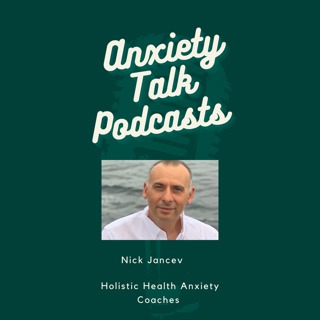Om avsnittet
The power of forgiveness is a profound and transformative concept that extends beyond mere social niceties; it significantly impacts our brain chemistry, emotions, and overall perception of life. Forgiveness can be understood as the process of letting go of resentment or anger towards someone who has wronged you, and it holds numerous psychological and physiological benefits.Changes in Brain ChemistryForgiveness has been shown to alter brain activity and chemistry. Studies utilizing neuroimaging techniques like fMRI have revealed that when individuals practice forgiveness, there is increased activity in areas of the brain associated with empathy and emotional regulation, such as the prefrontal cortex. This area is responsible for decision-making and social behavior, allowing individuals to process emotions more effectively.Moreover, forgiveness can lead to a decrease in stress hormones, such as cortisol. Chronic stress from holding onto grudges can lead to a variety of health issues, including anxiety and depression. By forgiving, individuals can reduce these stress levels, promoting a healthier balance of neurotransmitters like serotonin and dopamine, which are crucial for mood regulation.Emotional ImpactEmotionally, forgiveness provides a sense of relief and liberation. Holding onto anger and resentment can create a heavy emotional burden, leading to feelings of bitterness and despair. When individuals choose to forgive, they often experience a decrease in negative emotions and an increase in positive feelings such as compassion, empathy, and love. This emotional shift can enhance overall well-being and quality of life.Forgiveness can also lead to improved relationships. By letting go of past grievances, individuals can foster healthier interactions with others. This shift not only benefits personal relationships but can also create a more supportive community environment, where empathy and understanding flourish.Perception of LifeForgiveness can fundamentally alter how individuals perceive their life experiences. By choosing to forgive, individuals can shift their focus from victimhood to empowerment, viewing themselves as agents of change rather than passive recipients of harm. This change in mindset can lead to greater resilience, enabling individuals to navigate life's challenges with a more positive outlook.Moreover, forgiveness often encourages a broader perspective on human behavior. It fosters understanding that everyone makes mistakes, which can lead to a more compassionate worldview. This change in perception can enhance one's ability to connect with others, promoting deeper and more meaningful relationships.The power of forgiveness is far-reaching, influencing brain chemistry, emotional health, and life perception. By embracing forgiveness, individuals can experience significant psychological benefits, leading to a more fulfilling and harmonious life. In a world often riddled with conflict and misunderstanding, the act of forgiving can serve as a powerful tool for healing and transformation, both individually and collectively.Support this podcast at — https://redcircle.com/the-rest-and-digest-points-for-a-more-resilient-life/exclusive-content
